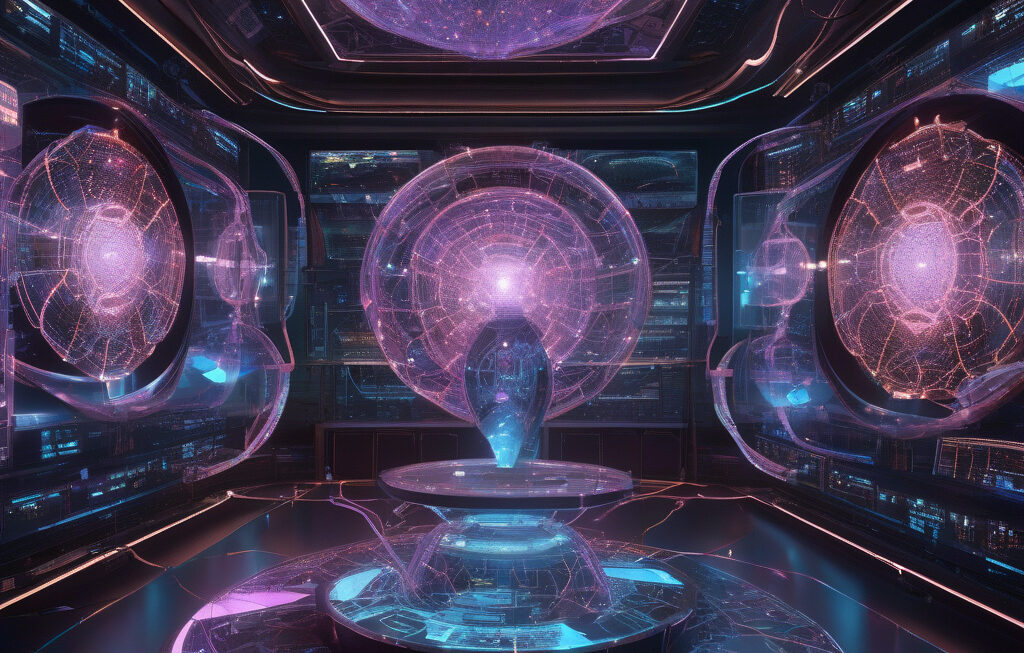Decentralised AI: The Future Beyond Bitcoin
In the realm of technological advancements, artificial intelligence (AI) has established itself as a transformative force. However, as AI continues to progress, experts are looking towards decentralised frameworks as the key to unlocking its full potential. These frameworks not only have the capacity to revolutionize the way AI operates but also pave the way for more open and community-driven innovation.
Decentralisation in AI refers to the distribution of computing power and decision-making processes across a network of nodes, as opposed to a centralized system where all operations are controlled from a single point. This shift towards decentralisation holds immense promise for the future of AI, as it addresses some of the major challenges faced by traditional AI systems.
One of the primary advantages of decentralised AI is its ability to enhance transparency and data privacy. In a decentralised framework, data is not stored in a single location but is distributed across multiple nodes. This significantly reduces the risk of data breaches and unauthorized access, addressing the growing concerns surrounding data security in AI systems.
Moreover, decentralised AI promotes greater inclusivity and collaboration within the AI community. By allowing a diverse set of stakeholders to participate in the development and governance of AI technologies, decentralisation fosters a more democratic and equitable innovation ecosystem. This not only leads to the creation of AI solutions that are more reflective of society’s needs but also helps in building trust and acceptance towards AI technologies.
Additionally, decentralised frameworks enable AI systems to scale more efficiently. Traditional AI models often face limitations in terms of scalability due to the centralized nature of their architecture. In contrast, decentralised AI systems can leverage the collective computing power of network nodes to handle larger volumes of data and complex computations, making them more adaptable to changing requirements and demands.
One notable example of decentralised AI in action is the concept of federated learning. In federated learning, instead of gathering all data in a central server for training a model, the model is trained locally on individual devices, and only the updated weights are sent to the central server. This approach not only ensures data privacy but also allows for collaborative model training without sharing sensitive information.
Overall, the integration of decentralised frameworks in AI has the potential to redefine the landscape of artificial intelligence, enabling a more secure, collaborative, and scalable approach to innovation. While decentralised AI is still in its early stages, its rapid evolution signifies a promising future where AI technologies are not only more advanced but also more accessible and inclusive.
As experts continue to explore the possibilities of decentralised AI, one thing is clear – the future of AI lies in embracing decentralized frameworks that empower communities and drive innovation towards a shared goal of creating smarter, more ethical AI systems.
#DecentralisedAI, #ArtificialIntelligence, #Innovation, #FutureTech, #CommunityDrivenTechnology












